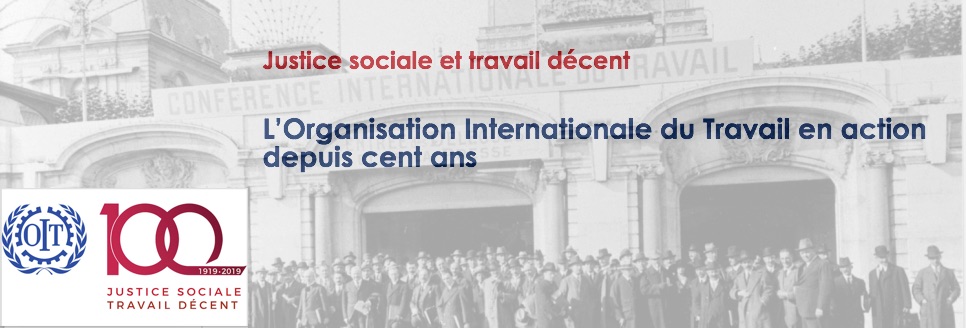L'essor de la mondialisation a alimenté une interrogation au sein de l'OIT et parmi ses mandants (notamment les représentant des travailleurs) quant à la capacité de l'organisation à faire appliquer les normes transnationales définies en son sein et la bonne volonté des différentes parties prenantes pour les mettre en œuvre. Les critiques ont souvent dénoncé l'obstacle des Etats peu enclins à appliquer des normes sociales ou faiblement équipés pour le faire.
Cette problématique est devenue particulièrement saillante à la fin des années 1990 lors de l'adoption de la Déclaration des principes et droits fondamentaux de 1998 et de l'agenda du travail décent visant en 1999 à replacer l'OIT au centre de la scène internationale de régulation de la mondialisation. Depuis, par différents instruments, l'OIT a cherché à avoir davantage de prise sur les conditions de travail au sein des entreprises en contournant l'échelon étatique et en s'adressant à elles plus directement, en particulier aux multinationales dont les chaînes de valeur s'étalent sur différents continents. A quel point ces évolutions constituent-elles une transformation et un renouveau de l'action de l'OIT ? Dans quelle mesure cette nouvelle perspective rapproche-elles les mécanismes de l'OIT de ceux à l'oeuvre au sein de l'ONU ou de l'OCDE, voire de l'ISO ? Nous montrons que l'OIT conserve sa singularité, tant du point de vue de la finalité des nouveaux instruments que dans les modalités de définition des interactions avec le monde de l'entreprise.
Cette communication poursuit deux objectifs : (1) donner à voir la construction et les controverses autour d'une sélection d'instruments par lesquels l'organisation tente de de se repositionner par rapport aux acteurs de l'entreprise multinationale et (2) re-situer l'OIT parmi les multiples organisations et mécanismes se donnant pour but de contribuer à la régulation du travail mondialisé, en faisant apparaître la singularité de son positionnement. Pour ce faire, nos proposons une typologie basée sur la finalité, les principes d'action, le degré de contrainte et les acteurs de la gouvernance et du contrôle.
Partant d'un cadre théorique combinant économie politique de la mondialisation, sociologie des organisations internationales et analyse politique de la régulation transnationale, cette communication rend compte d'une recherche exploratoire conduite en 2017. Elle s'appuie sur une campagne d'entretiens menés avec des représentants des mandats et des fonctionnaires du BIT à Genève, l'analyse d'un corpus de documents et une étude des discussions au sein de différentes conférences et groupes de travail de l'OIT au cours des 20 dernières années.
ENGLISH VERSION
Beyond social norms applicable to states for a better implementation ?
ILO, labour standards and multinational firms : between a willingness to enhance engagement and a singular position on the international stage
The rise of globalisation has led to question, both within the International Labour Office and among its constituents representing workers, the capacity of the organisation to enforce the implementation of the labour standards it defines, and the goodwill of constituents to implement them. Critiques have often emphasized that States that are less favourable to social standards or less equipped to implement them constitute major hurdles.
These issues have become particularly salient from 1998-1999 when the Declaration on fundamental principles and rights at work was adopted and the « Decent Work » agenda aimed to put the ILO back to centre stage in the international regulation of globalisation.
Since then, the ILO has developped various policy instruments to bypass state authority and try and increase its leverage on actual working conditions within firms, by adressing them more directly, especially within multinationals whose activities and value chains spread on several continents.
To what extent does such evolution constitute a transformation and a renewal of ILO action ? To what extent does this bring ILO mecanisms to those at work with the rest of the UN system, OCDE or normalisation operated by the international standards organisation (ISO)? We show that ILO instruments still reflect the singularity of the tripaprtite organisation and its original mission, both in terms of goals and objectives and in the way it defines its interactions with the world of business.
This paper is pursuing two objectives. Firstly, it aims to illustrate the processus of construction of, and controverses around, a selection of policy instruments by which the ILO seeks to reposition itself in relation to business actors. Secondly, it aims to bring the ILO back among the multiple organisations and mechanisms aiming to contribute to the regulation of globalised labour and show its specific and singular stance. To highlight the latter, we suggest a typology based on the purpose, the principles of action, the degree of constraint and the actors of governance and control.
Based on a conceptual framework building on the political economy of globalisation, the sociology of international organisations and policy analysis of transnational regulation, the paper presents the results of an exploratory research carried out in 2017.
It is based on empirical material gathered by means of a series of interviews with representatives of ILO constituents and ILO civil servants in Geneva, and the analysis of a sets of documents and discussions held at various ILO conferences and working groups in the last two decades.

 PDF version
PDF version
